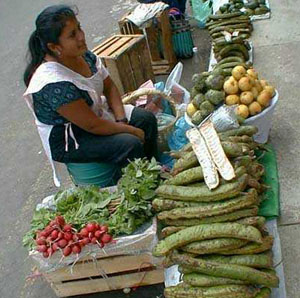Westwords

I bought another watch the other day. I didn’t need it, but there is great joy in negotiating with the watch salesman.
A chunky, little man works the villages along the north side of Lake Chapala in the exciting state of Jalisco. His specialty is watches with fancy faces, famous names and very ordinary insides. He always has make-believe Rolexes and sometimes Cartiers and Movados.
We both know his prices are lower than Wempe in New York but higher than they should be. This is the basis of our relationship.
I spotted the marketing genius across the street and called out, “Buenes dias.”
He looked at me with deep-seated suspicion. In all previous encounters, he has initiated the conversation with something like “You need very fine watch?” or maybe “Very fine watch for sale at special price, today only.”
Very fine watch is always early in the conversation. Again, we both know better.
He came across the street with his knapsack of treasures. In no more than an instant, he had three on his wrist and two in an open palm. How much for this one?
“450.”
Too much, much too much, “200.”
“For you, very good deal, 375.”
Negotiations about this one or that one continued for three or four minutes, far longer than our conversations when I am wearing my smart cap, when I have absolutely no intention of buying anything, when we are just joshing each other.
This time, he smelled pesos and eased down to 250. I showed him a 100, 50 and two 20s. His expression switched from eager anticipation to crushed disappointment. No movie actor can improve on this dramatic transformation.
Sorry, no sale. That’s all I have. I offered the tattered billfold for inspection. Empty. He handed over the watch and took the money.
“Cheapo gringo,” he said as he started to walk away. I smiled. He smiled. He stopped, wondering if I had a few more pesos tucked away in another pocket, and asked if I wanted to buy sunglasses, Louis Vuittons this time, not Ray-Bans.
This is my third Rolex. Maybe a grandson will get one in his Christmas stocking. He could trade it to an unsuspecting university professor or one of his football friends.
Bargaining is a way of life between customers and street merchants throughout Mexico. Vendors expect it. Some seem surprised if you pay the asking price. Our favorite Mexican neighbor says those who don’t deal down are dumb.
There is an art to gentle haggling. Be nice. Good-looking sombreros or sandals or straw baskets you have there, señor, muy bueno, how much?
Whatever he says is entirely too expensive. If you smile first, you can then grimace and put your hand over your heart as if the totally unreasonable price has triggered an attack.
Don’t be too interested in whatever he is selling. Shake your head sadly and start to walk away, then offer less than you would actually pay. Throw in another soft smile that might be mistaken for an apology.
The salesman may pretend to be properly pained, as if his children will starve. Most likely he will counter with a number lower than the start but higher than your bid.
Too much! Demasiado!
Good-natured theatrics are now permissible. You can gasp, frown, cringe, laugh, roll your eyes, suggest a senior discount or raise your bid by three pesos.
Whatever you do, keep negotiations light and friendly. This is not war. You don’t have to win. You can go to a store.
If you arrive at a reasonable compromise and want to save more, mention the possibility of buying two. Mexican mechants expect to give discounts for bulk sales.
Serious rule: Be sure you can really walk away if your best bargaining effort fails.
Serious rule 2: Never, ever back down from buying if the seller accepts your price.
There are other fundamentals and exceptions. I do not haggle about posted prices of fruit and vegetables and tacos. They are cheap enough. I take into consideration that street sales are the only source of income for some people. I don’t want to get fleeced but I have no intentions of being a bully over a nickel, dime or quarter.
If both sides understand, bargaining is good sport. Maybe even fun. Something like poker. So it once was at a Volkswagen dealer in Guadalajara, 10 years ago, old man and young woman talking about buying a basic bug. Color doesn’t matter, pesos do.
Special daughter-in-law, I and the salesman reached an impasse. There was no more give or get. This is it, here’s how much we’ll pay — for two.
The young VW man arched his eyebrows, surprised by the possibility of selling two cars, but said the offer was impossible.
Better ask the manager just to be sure.
Within 12 seconds, the older man in the dark blue suit nodded his approval and asked if we might be interested in buying three. He offered only white. I complained that there were no radios. He threw in free floor mats.

